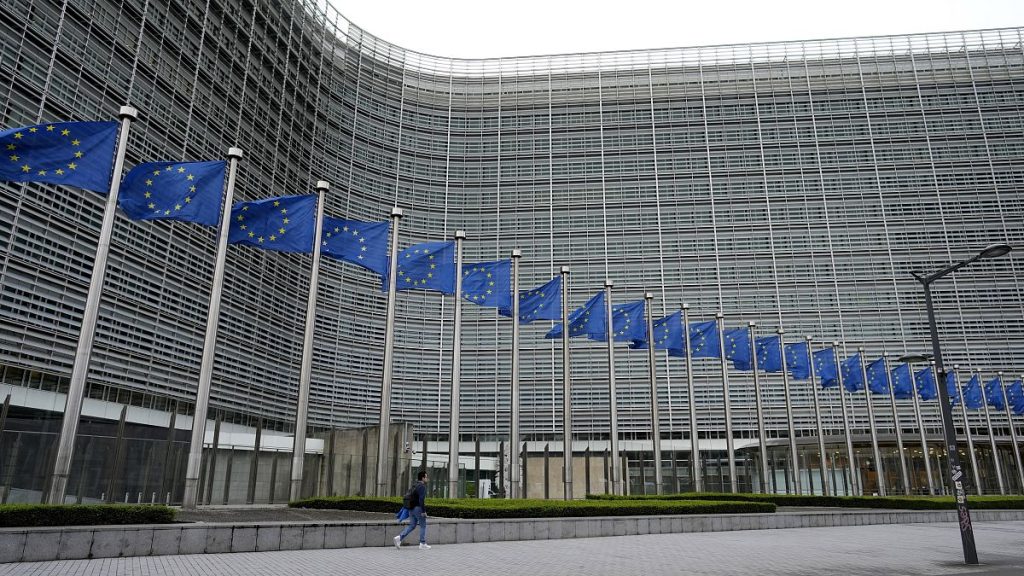Iceland, a nation historically ambivalent towards European Union membership, is experiencing a shift in public opinion, with a growing majority now favoring joining the bloc. This evolving sentiment is driven by a confluence of factors, including the economic fallout of the 2008 financial crisis, the complexities of Brexit, and a range of pressing domestic concerns. The newly elected government, led by Prime Minister Kristrún Frostadóttir, has responded to this changing landscape by pledging to hold a referendum on EU accession by 2027. This decision underscores the government’s commitment to addressing the growing public interest in EU membership and allowing the Icelandic people to directly determine their future relationship with the European Union.
The government’s plan to hold a referendum reflects a significant departure from Iceland’s previous stance on EU membership. For decades, public opinion remained largely divided, with roughly equal proportions of the population supporting, opposing, or remaining undecided on the issue. However, recent polls indicate a notable increase in support for EU accession, with over 54% of respondents now favoring joining the bloc. This surge in pro-EU sentiment suggests a growing belief among Icelanders that membership would offer economic benefits and improve their overall financial well-being. The government’s commitment to a referendum underscores the importance of this issue to the Icelandic people and provides a platform for a democratic and informed decision.
Further emphasizing the government’s commitment to transparent decision-making, incoming Foreign Minister Þorgerður Katrín Gunnarsdóttir announced the formation of an expert panel to assess the potential advantages and disadvantages of retaining the Icelandic crown versus adopting the euro. This move signifies the government’s intention to thoroughly evaluate the implications of currency adoption and to engage in a comprehensive cost-benefit analysis before making any decisions. This careful approach demonstrates a commitment to fiscal responsibility and ensuring that any potential shift in currency policy is made in the best interests of the Icelandic economy and its citizens.
The upcoming referendum, promised by 2027, marks a pivotal moment in Iceland’s relationship with the European Union. It represents an opportunity for the Icelandic people to directly express their views on a matter of significant national importance. The government’s commitment to holding a referendum, coupled with the establishment of an expert panel to examine the currency issue, underscores the significance of this decision. These actions reflect a growing recognition within the government that the time has come for a definitive resolution on the question of EU membership, allowing Iceland to chart a clear course for its future in the context of European integration.
Beyond the EU question, the newly formed government, a historic coalition led entirely by women, has outlined its key priorities, focusing on stabilizing the economy and addressing critical domestic challenges. Prime Minister Frostadóttir has emphasized the government’s commitment to tackling inflation and lowering interest rates, demonstrating a focus on fiscal prudence and economic stability. Additionally, the government aims to stimulate economic growth by promoting wealth creation in the private sector and improving the overall quality of life for Icelanders. This emphasis on economic stability and domestic well-being reflects the government’s commitment to addressing the immediate concerns of its citizens.
The formation of this new government, with its all-female leadership, represents a historic milestone for Iceland and a significant step towards greater gender equality in political leadership. Prime Minister Frostadóttir, at 36, becomes Iceland’s youngest ever Prime Minister, marking a generational shift in Icelandic politics. The government’s intention to streamline its operations by reducing the number of ministries signifies a commitment to efficiency and cost-effectiveness in public administration. This streamlined approach underscores the government’s dedication to responsible governance and its focus on delivering effective and efficient public services to the people of Iceland.

